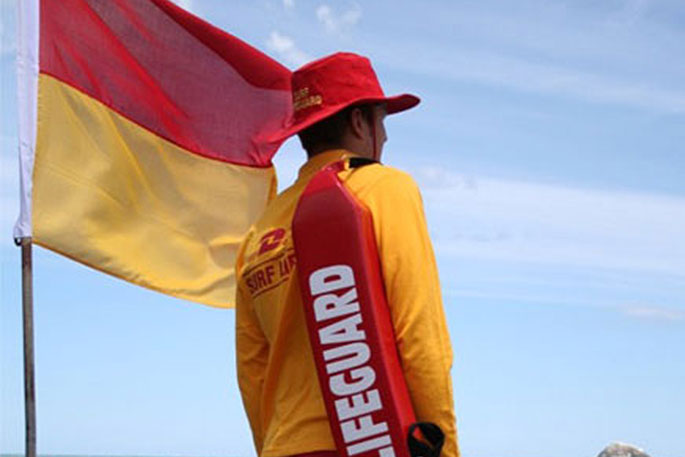Older men in New Zealand are ignoring water safety messages, an expert says, urging them to understand they're no longer "bulletproof" 20-year-olds.
Water Safety NZ chief executive Daniel Gerrard is also calling for more roving lifeguards, and a rethink of where Surf Life Saving sets up its patrols.
It comes after Wednesday's tragedy at Opoutere Beach in Coromandel, where six people were pulled from the water, one of them dying.
Gerrard says it "could have been much, much worse" if a group of people including nurses, a doctor and a former lifeguard didn't happen to be on the scene.
"Not the start to the year we wanted to see or hear," he told RNZ's Summer Times on Thursday. "Thoughts go out to the family and that amazing bunch of people on the beach."
A seventh person remains missing, the search ongoing.
Gerrard says the recent bad weather has seen easterly winds push more water than usual onto the East Coast, which then "needs to head back out to sea".
"Similarly with rips - it will just find a bit of softer sand and start to churn out a bit of a channel… It just appears that this group of people overestimated their abilities and underestimated those conditions. It's a tragic outcome."
The incident follows the drowning of a man at a beach in Whangamatā, also on the Coromandel Peninsula, on Tuesday.
Gerrard says 90 per cent of last summer's 93 water fatalities were men, particularly those over 55.
"As you get older, that risk profile is far worse - 55-pluses are the target market for us because they are just not listening."
Last year's toll of 93 was the worst this century, Gerrard said. So far, 2023 is thankfully well off that record-setting pace - which he put down to the bad weather putting most people off hitting the beach.
"One is too many. We just need… to stop and have a little bit of a think before we jump in the water, before we get in the boat."
Hampering the effort to reduce the drowning toll is a lack of lifeguard coverage at the country's beaches.
"Surf Life Saving NZ and their squads and teams right around the country do a wonderful job, but they're only patrolling about two per cent of our coastline," says Gerrard.
"They're very historic places that these patrols have taken place, and I think there's an opportunity to start to look at where populations are starting to grow and what's needed on the beaches in those environments.
"What are those holiday spots? Where can we put roving patrols, and have patrols set up on those beaches that we know are really, really dangerous but also really really popular?"
Expanding that coverage will come at a cost, he says, and in the meantime there will continue to be incidents where professional assistance is not available.
In those cases, having basic water skills like knowing how to stay afloat are essential, he says.
"We live on an island - it's what we've got to be good at."
Worst-case scenario, he said to "have a look around you - is there something you could take with you to float on, to provide support, so that you don't use up all your energy getting out there to help somebody, and then you've got nothing left in your tank?
"Stop and have a quick look around, make sure that you are calling for help - maybe there are others that could provide a better job? But look, I totally understand where you need to do what you need to do. It's a challenge."



0 comments
Leave a Comment
You must be logged in to make a comment.